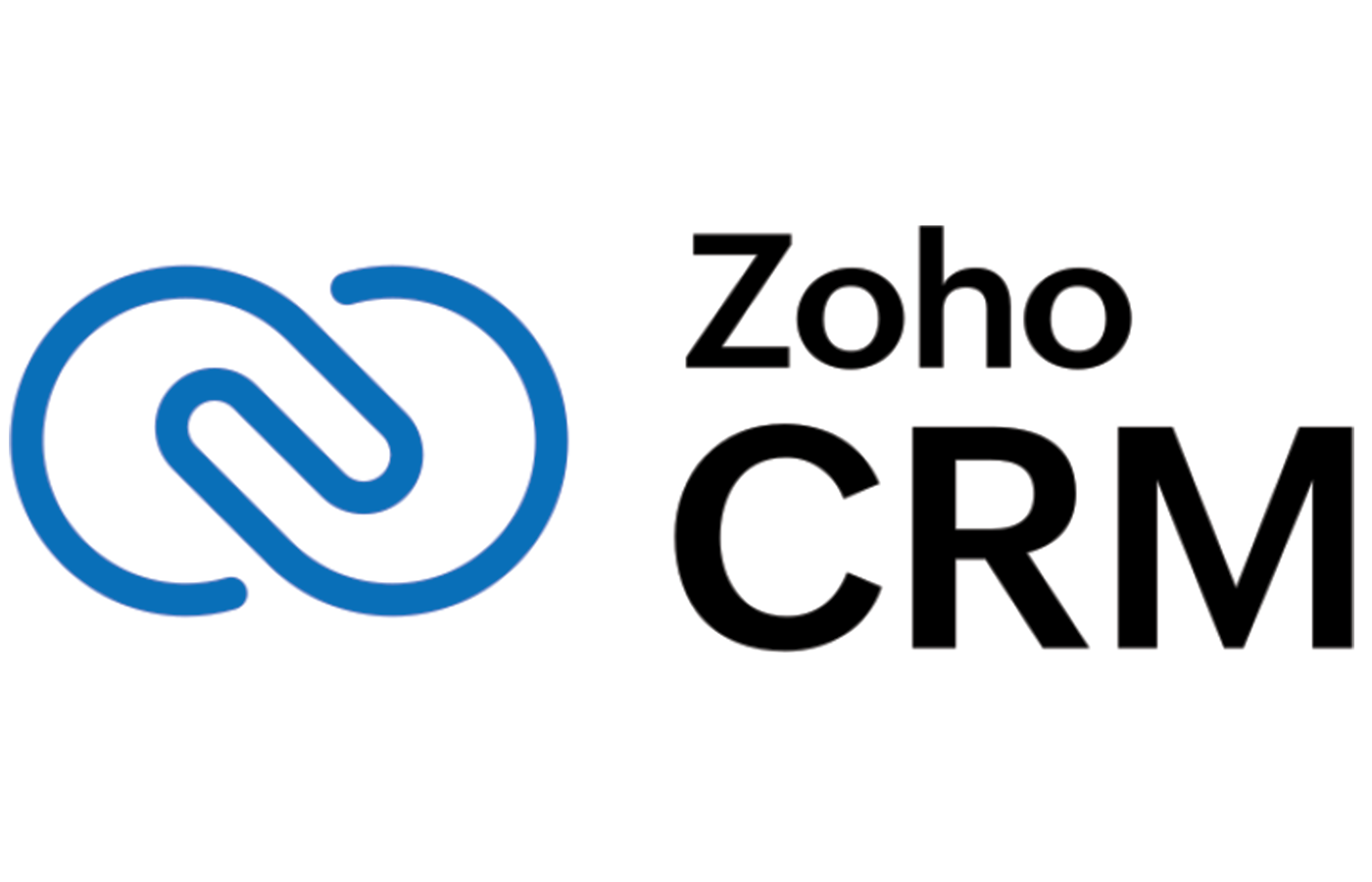Zoho CRM’s fast factsOverall score: 4.3 Pricing: Offers a free version for up to three users. Paid plans start at $14 per user per month, billed annually. Key features:
|

Zoho CRM is a leading customer relationship management software offering multichannel marketing, intelligent sales tools and a variety of customizable assets. The platform itself is flexible, with a focus on data and profile transparency with tools like their 360-customer view and contextual team collaboration.
Considering the diverse CRM features it offers, Zoho CRM is affordably priced compared to its competitors. This can be a major attraction for startups and small businesses. However, if you specifically want a CRM tool that’s simple to use or offers hyper-specific industry-related features, there are better options available.
Featured Partners
Zoho CRM Pricing
- Free CRM: Free for up to three users and comes with lead and document management and a mobile app.
- Standard: $14 per user per month, billed annually, or $20 per user when billed monthly.
- Professional: $23 per user per month, billed annually, or $35 per user when billed monthly.
- Enterprise: $40 per user per month, billed annually, or $50 per user when billed monthly.
- Ultimate: $52 per user per month, billed annually, or $65 per user when billed monthly.
Key features of Zoho CRM
360-degree customer view
Zoho CRM Plus offers a 360-degree customer view, providing access to important client information, such as contact information, name, location and all sales or marketing communication sales reps have engaged with (Figure A). This comprehensive view is accessible through one unified interface.
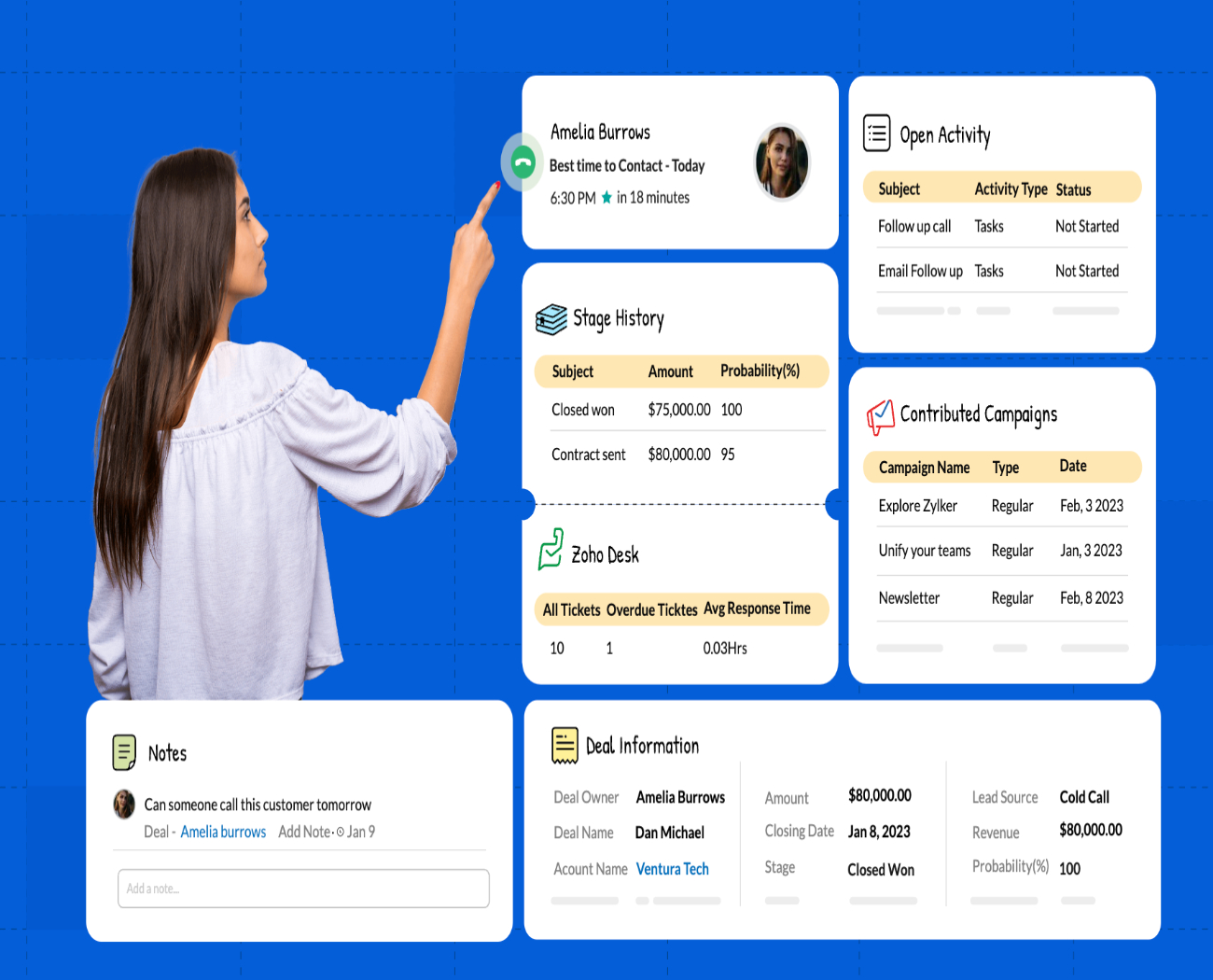
Omnichannel customer engagement
Omnichannel engagement acts as a hub for all customer-facing channels in the CRM dashboard (Figure B). After creating multichannel and multistep campaigns for engaging with clients, this tool allows for the unification of customer signals, such as real-time updates across teams and interfaces.
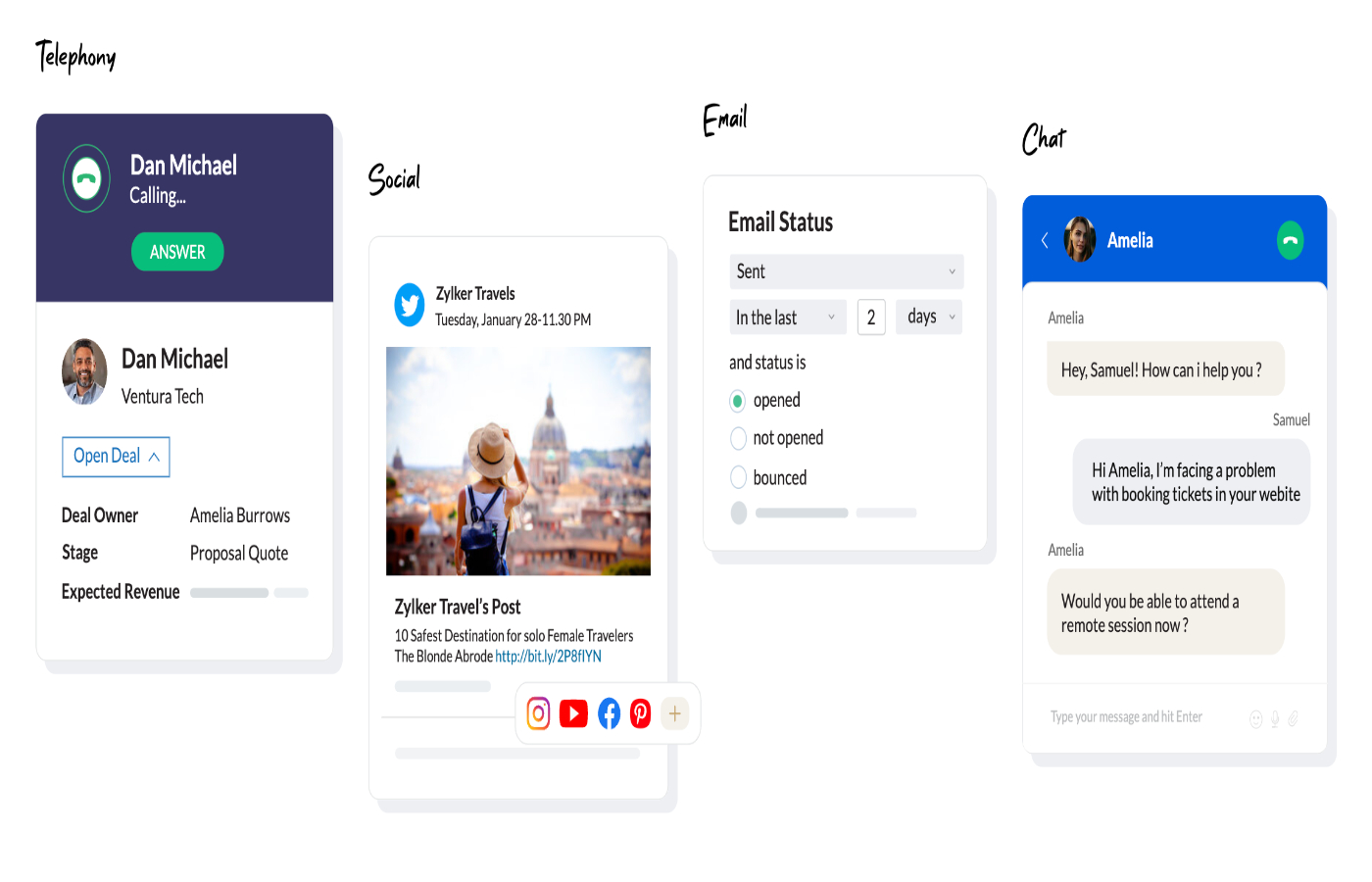
Process management
With Zoho CRM, sales reps are able to automate entire processes across the sales and marketing teams. They can streamline processes, such as lead generation and nurturing through webforms and email campaigns. In addition, sales reps are able to create custom lead follow up workflows, which break projects into achievable tasks and subtasks, trimming ticket assignment efforts (Figure C).
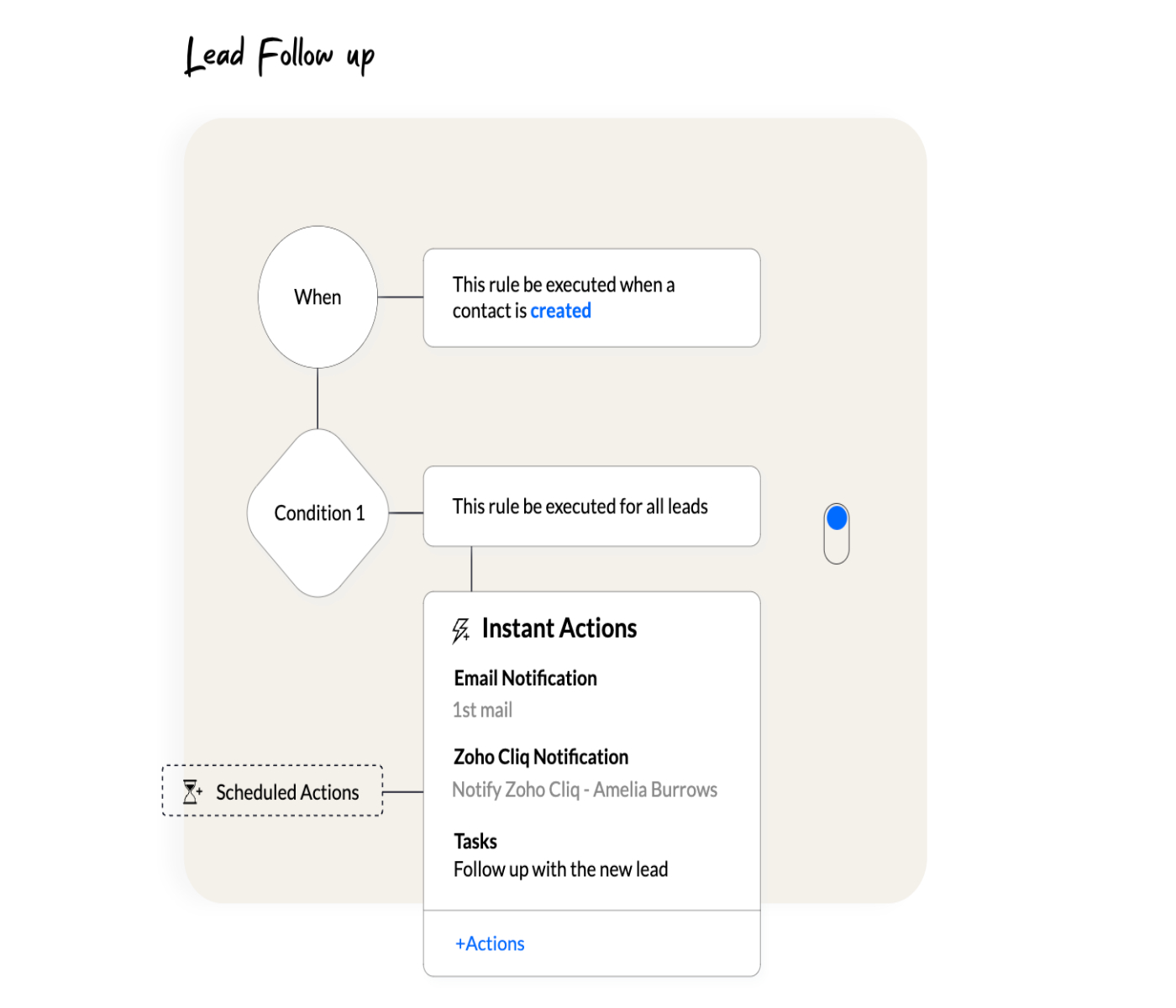
Zia AI-tool
Zia is Zoho’s AI assistant that can help monitor lead activity, forecast deals and even answer support calls on an organization’s behalf. With its Ask Zia feature, sales reps can request niche information, and the tool will search through all client records in the software and pull up the information instantly (Figure D).
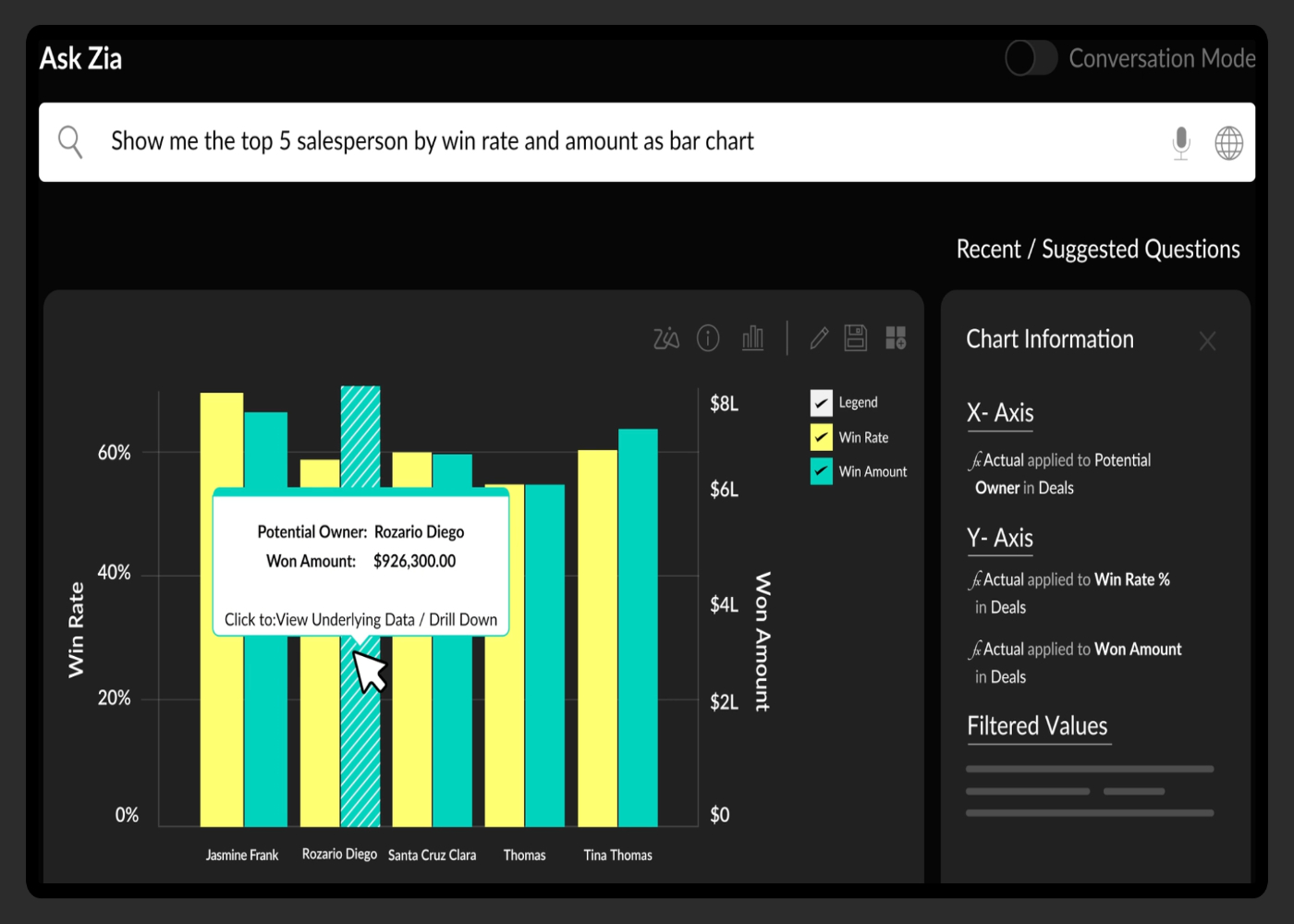
Zoho CRM pros and cons
| Pros | Cons |
|---|---|
|
|
Alternatives to Zoho CRM
The user interface of Zoho CRM is reportedly not that user-friendly, and customer support can be inconsistent. If you’re looking for a more robust free version or a software with an easier learning curve to implement in an organization, there are other CRMs to consider.
Other CRM software regularly compared to Zoho CRM include Freshsales, Insightly and HubSpot. These options all offer a trial or demo period, if not a free-for-life tier. Apart from the standard core features expected from a CRM, like pipeline management or data analysis, these alternatives also offer advanced technology tools and integrations.
SEE: Check out our guide to the top enterprise CRM software, where we cover these alternatives and others.
| Software | Zoho CRM | Freshsales | Insightly | HubSpot |
|---|---|---|---|---|
| AI-powered tools | Yes | Yes | Yes | Yes |
| Third-party integrations | Yes | Yes | Yes | Yes |
| Integrations | Yes | Yes | Yes | Yes |
| Free version | Yes | Yes | Yes | Yes |
| Free trial | Yes | Yes | Yes | Yes |
| Starting price for paid tiers* | $14 per user per month | $11 per user per month | $29 per user per month | $20 per 2 users per month |
* Pricing is based on annual subscription plans. Month-to-month billing options will differ.
Freshsales

Freshsales is a popular option with advanced collaboration and operation features. Sales reps are able to assign and monitor individual tasks as well as progress on entire projects or deals across departments. Freshsales’ multiview dashboards allow information to be synchronized across views with the most up-to-date activity notes.
SEE: For a full breakdown, check out our independent review of Freshsales.
Insightly
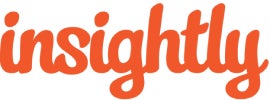
After helping identify potential opportunities, Insightly’s project management tools assist users in tracking post-sale activities and follow ups. Its process automation feature reduces redundant sales tasks, like appointment scheduling and reminders and follow up emails. This streamlines productivity throughout an organization’s sales process.
SEE: Read our review of Insightly for a full breakdown.
HubSpot

HubSpot’s robust free version allows up to 5 users. If an organization decides HubSpot’s paid tiers better align with their needs, those prices are still affordable. The free version of the CRM does offer an array of sales and marketing tools like contact management and email marketing, making it an easy CRM to implement across teams.
SEE: Explore this side-by-side comparison of HubSpot and Pipedrive.
Review methodology
We used our inhouse scoring tool, which consists of criteria we deem most important when evaluating a CRM software. We then compared Zoho CRM against the industry standard for each criteria in that rubric. We relied on Zoho CRM’s own resources as well as some real user feedback and scores.
The criteria we used to score Zoho CRM include:
- Cost: Weighted 25% of the total score.
- Core features: Weighted 25% of the total score.
- Customizations: Weighted 15% of the total score.
- Integrations: Weighted 15% of the total score.
- Ease of use: Weighted 10% of the total score.
- Customer support: Weighted 10% of the total score.
